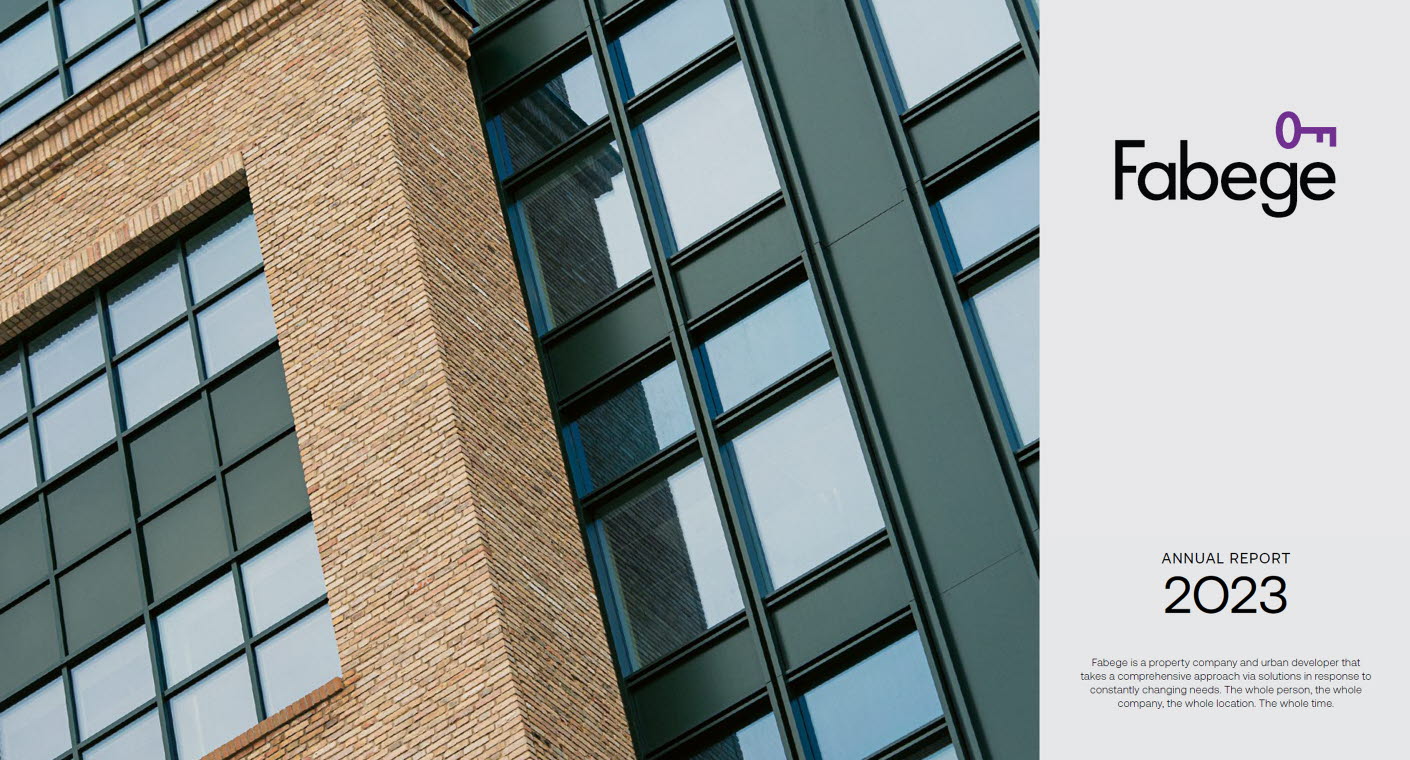At Fabege, we are proud of how far we have come in our sustainability work, but at the same time assume that everything has the potential to improve. Therefore, our sustainability report is a good tool for simultaneously mapping, evaluating and driving our sustainability work.
About the report
We report on our sustainability work annually through the sustainability report included in our annual report. Since 2011, the report has been prepared in accordance with the Global Reporting Initiative's (GRI) guidelines for voluntary reporting of sustainability information. The information in the sustainability report has been subject to a limited review by Deloitte.
GRI Standards
Since 2011, we report according to GRI Standards, a standard for sustainability reporting based on how organisations affect the economy, people and the environment.
Our GRI index contains references to the disclosures that are compulsory for the latest version, GRI Standards 2021, as well as disclosures related to Fabege’s material sustainability topics and management of these topics.
TCFD
Since 2019, we have been reporting according to the sustainability framework Task Force on Climate-related Financial Disclosures (TCFD) to map and prevent our climate-related financial risks. What distinguishes TCFD is that the framework is based on the climate's effect on the company rather than the company's effect on the climate.
During the year we continued with efforts to identify and evaluate climate-related risks and opportunities via an advanced risk analysis. This has enabled us to assess their impact on the company’s strategy. We will continue to work on identifying and evaluating climate-related risks. Find out more about our scenario analysis.
Our TCFD reporting (pages 78-79)
EPRA
Since 2019, we report our sustainability performance measures based on EPRA’s (European Public Real Estate Associaton) latest recommendations: Best Practices Recommendations on Sustainability Reporting, sBPR, third version September 2017. Performance measures are reported for energy, greenhouse gas emissions, water, waste, environmentally certified buildings and corporate governance and social aspects.
UN Agenda 2030 and Global Compact
We endeavour to operate according to the principles of responsible business conduct, reduce our carbon footprint and safeguard human rights at all levels. The UN Agenda 2030 and its 17 global goals serves as a guide in efforts to ensure global development is sustainable in the long term, and since 2011 we have supported the UN Global Compact's ten principles that ensure work for human rights, labour law, the environment and anti-corruption.



